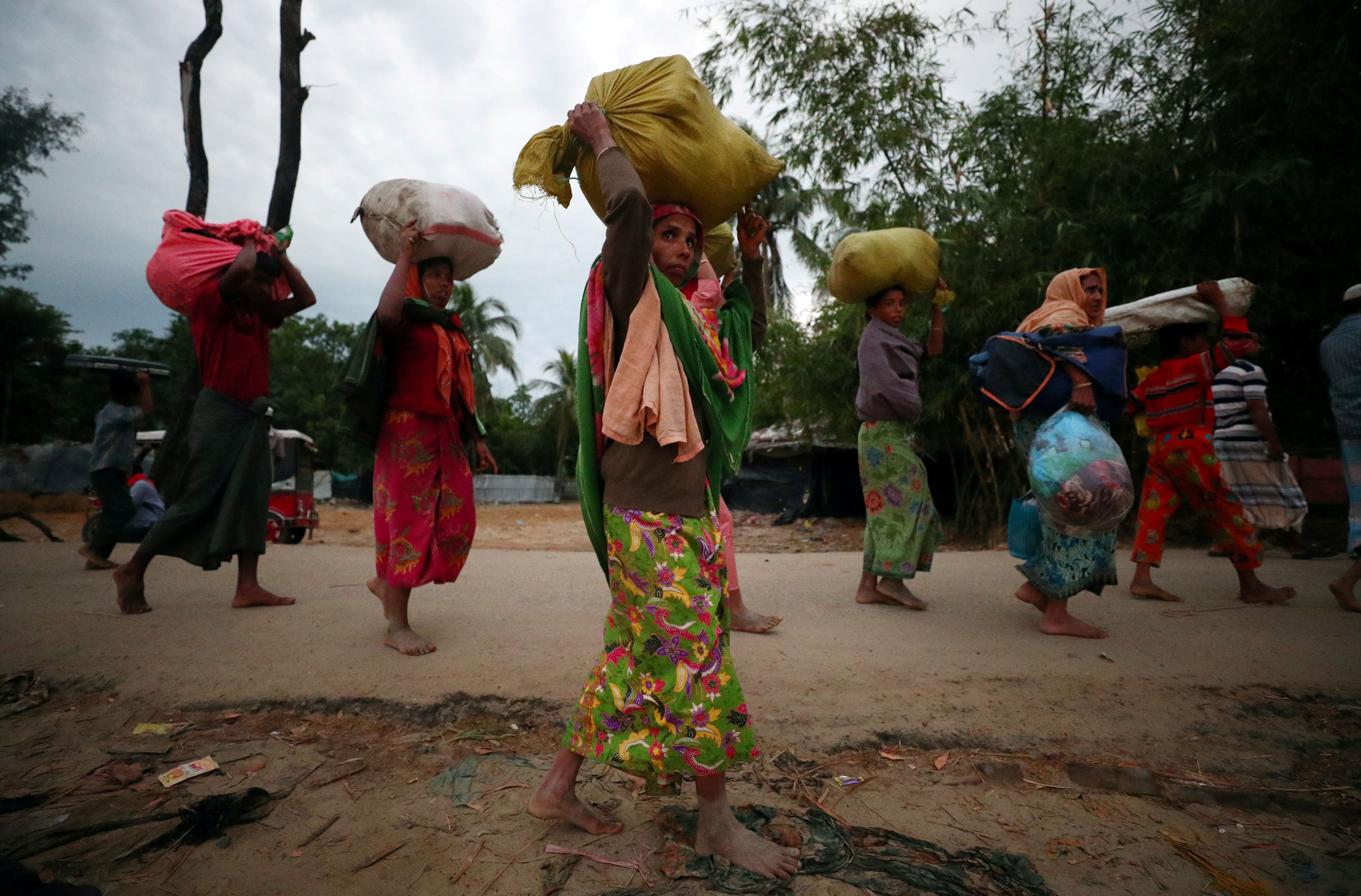The Persecution of the Rohingya: Challenges to the Transformation of Myanmar

Crisis in Rakhine State
The current humanitarian crisis began after the 25 August attack by the newly formed Arakan Rohingya Salvation Army (ARSA) on 30 Myanmar security posts in which 12 soldiers were killed. The country’s military responded with a “clearance operation” against the organisation it has deemed a “terrorist” outfit. The military actions were accompanied by attacks by Buddhist mobs on the Muslim minority Rohingya, burning of villages, and the expulsion of many Rohingya. As of 20 September, more than a thousand people had been killed and more than 420,000 had fled to neighbouring Bangladesh. Because the ARSA militants are few and poorly equipped, they do not constitute a serious threat to Myanmar’s army. The group has declared it fights to defend the minority from persecution and has no links with global jihadist organisations. Its rise is rather the result of systematic discrimination against the nearly one million Rohingya, which comprise the majority of the nearly 40% of Muslims in Rakhine
International organisations, including the UN High Commissioner for Human Rights, have described the military’s actions as a “textbook example of ethnic cleansing.” Verification of the situation on the ground is difficult since access to the region by humanitarian organisations and media is restricted. Western governments have repeatedly called on the Myanmar side to stop the violence in Rakhine and respect human rights of all. The criticism has been especially strong and focused on Aung San Suu Kyi, the civilian leader of Myanmar who had kept silent for a long time on the events in Rakhine. She finally gave a major speech on it on 19 September, but she did not condemn the army nor address the allegations of “ethnic cleansing,” instead called for a “better understanding” of the situation and the reasons behind the outburst of violence. On the other hand, she has declared that human rights violators would be punished, vowed that all refugees would be allowed to return after a verification process, and expressed regret over the violence. Most of the country’s partners perceived the speech as unsatisfactory, and the UN, the U.S., and the UK have all called for an end to the military action and access granted to humanitarian organisations to visit Rakhine. In recent days, the influx of refugees into Bangladesh has slowed and the violence seems to have been limited.
Transformation
The recent events in Rakhine and the cautious reactions of Suu Kyi must be seen in the broader context of the country’s political and economic transformation. The democratisation process launched in 2011 led to partly free elections in 2015 and an imperfect transition of power from the military to civilian leadership. The 2008 constitution adopted by the military junta gave itself control over three security ministries (defence, home, and border affairs) along with 25% of the seats in parliament and a ban on then-opposition leader Suu Kyi from taking the key presidential post. Her party, the National League for Democracy (NLD), then won a decisive victory in the 2015 elections and appointed Htin Kyaw, a close associate of Aung San Suu Kyi, as president. She took over several ministries, including foreign affairs, and the newly formed position of State Counsellor (akin to Prime Minister), which essentially allowed her to overcome the constitutional restrictions.
These political changes paved the way for Myanmar to enter into economic cooperation with other countries, liberalisation of its economy, and increased growth. According to the Asian Development Bank, Myanmar’s GDP grew by 6.4% in 2016 and is expected to grow by 7.7% this year, and by 8% in 2018. The removal of economic sanctions placed on the junta has resulted in a dynamic inflow of foreign investment ($3.3 billion in 2016). The political freedom and economic development of the country have also led to some negative social phenomena, such as increased Buddhist nationalism and mounting social tensions in the face of growing economic inequalities. In different parts of the country since 2012, there have been moments of communal violence in which the Muslim minority has served as an internal enemy. The animosity of most ethnic Burmese towards the Rohingya, perceived as illegal immigrants from Bangladesh, also constitutes an important limitation on the government’s actions.
Peace Process
Suu Kyi’s election made the end of more than seven decades of war with various ethnic minorities and the peace process a top priority. On 15 October 2015, the previous military government signed the Nationwide Ceasefire Agreement (NCA) with eight of the 21 armed ethnic groups. Suu Kyi continued this process, leading to the first peace conference (so-called Panglong-21) in August 2016, in which most ethnic organisations participated. In May 2017, a second congress was held with 15 groups. Next, the “37 principles” of cooperation were adopted, including an agreement on the federalisation of the country in exchange for the minorities’ rejection of secession. However, recurring fights with some ethnic groups and the reluctance of most ethnic organisations (including the largest Wa alliance) to sign the NCA with the government indicated the fragility and uncertainty of the peace process.
As part of national reconciliation, steps were taken to regulate the status of the Rohingya. In May 2016, Suu Kyi set up the Central Committee for Peace, Stability and Development in Rakhine State. In September 2016, the Advisory Commission on Rakhine State, headed by the former UN Secretary General Kofi Annan, started its work. On 23 August, two days before the outbreak of the current crisis, the commission presented its final report. Many of its recommendations met the expectations of the Rohingya, including the need to improve access to education and healthcare, guarantee a better share of income from natural resources, and to consider an amendment to the country’s Citizenship Law (1982), which de facto makes the Rohingya a “stateless” group. Although the government of Myanmar expressed a willingness to implement these proposals, the army responded negatively. At the end of September, though, the government launched a committee chaired by the Union Minister of Social Welfare, Relief and Resettlement to implement the recommendations of the Advisory Commission.
Evaluation and Prospects
The events in Rakhine indicate that the army still holds the ultimate power in the country and that it is up to it alone to stop the violence. The “anti-terrorist operation” is disproportionate to the threat posed by ARSA, and the application of collective responsibility to the entire community is not justified. The Rohingyas’ expulsion may be linked to the army’s reluctance to implement the Advisory Commission’s recommendations, especially concerning citizenship. The army’s economic interests in Rakhine, including the distribution of benefits from gas fields and an oil pipeline to China that opened in 2017, may also be in play. Further, the conflict in Rakhine is useful to the army to reaffirm its position in the state apparatus and to put pressure on other ethnic groups involved in the peace process.
Suu Kyi’s cautious reaction can be understood as a tactical game with the army. Her conciliatory words to the international community were aimed at maintaining the support of foreign partners for the country’s transformation. An unequivocal condemnation of the military action and defence of the Rohingya would risk an open conflict with the army and the loss of public support. To take such a strong stance, though morally correct, would diminish her ability to affect the situation in the country and could constitute too big a political risk.
Myanmar’s Western partners have found themselves in the difficult position of having to choose between putting pressure on the country’s elected authorities to protect human rights and risk weakening the civilian authorities vis-à-vis the army. Excessive pressure could destabilise the country, end democratisation, and break the peace process. This outcome would not solve the problems of the Rohinghya minority, which then could be subjected to more repression, further radicalisation, and even the influence of Islamist terrorism. Therefore, continued engagement with the government and pressure on the army seems the better option.
Now that the dramatic phase of the crisis appears to be over, the international community should continue to demand access by humanitarian and foreign observers to Rakhine, the rapid return of the refugees, and their reintegration. The main challenge remains to persuade the army to implement the recommendation of the Advisory Commission, which if enacted would regulate the Rohingyas’ status and be the basis for their reconciliation with the local majority. Myanmar’s Western partners, including the EU, can support this process by directing additional development assistance to Rakhine and continuing their investments in Myanmar.


